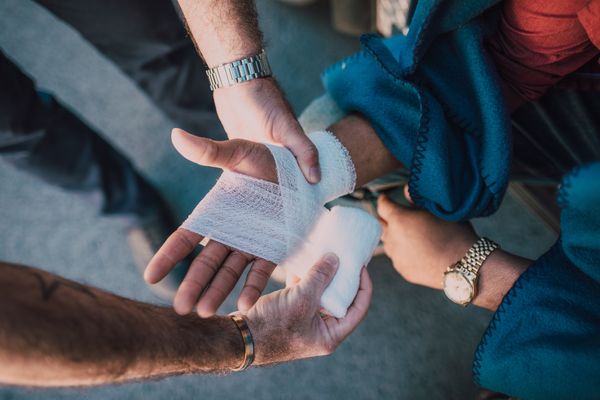In California, medical malpractice and personal injury claims are considered personal injuries; however, personal injury claims overarchingly cover a broader scope of injuries, while medical malpractices solely cover injuries related to medical and hospital care.
![]()
What Is A Personal Injury Claim?
A personal injury claim is when a person has been injured due to someone’s recklessness or negligence. For a personal injury claim to be approved, the lawyer or injured person must prove to a certain degree that it was a third-parties fault.
Examples of Personal Injury include:
- Car accidents where one person is at fault—such as speeding, running a light, or reckless driving
- Animal bites—a third-party’s dog is violent and bites or attacks resulting in physical injuries
- Pedestrian accidents— if a pedestrian is hit or injured by a car when they were following all pedestrian lights or crosswalks
- Faulty equipment, appliances, toys, clothes, or any other product that can be proved as a manufacturing error
Personal injury claims seek compensation for medical bills, lost income, legal fees, and compensation for pain and suffering. If the plaintiff (person injured) files a personal injury claim for negligence, they must explain these arguments:
- The duty of care could be as simple as obeying traffic laws, putting up caution signs, or proper supervision of dogs/ animals. A jury must determine what a reasonably prudent person would have done under the same or similar circumstances when considering the duty of care
- Breach of care is when the plaintiff describes how the third party is responsible for their injury. (for example, the plaintiff can prove the third-party ran a red light or was speeding)
- Injuries can be proved with medical records or any documentation. A plaintiff may include the effect of the damage which resulted in them losing their job having to take a medical-related absence.
Personal injury claims can ask for punitive action; however, the court will likely deny the punitive action unless it was a purposeful violent act or situation.
![]()
What Is Medical Malpractice?
Medical malpractices are personal injury claims that focus on recklessness or negligence from doctors, nurses, or hospital staff. Medical Malpractice claims must emphasize that the patient was injured or obtained health-related issues from this incident.
In a medical malpractice claim, the plaintiff must prove:
- The legal nature of the claim— This is when the plaintiff will describe hospital errors
- The type of damages sustained— further medical documentation can prove either physical or emotional damages sustained from hospital errors.
- The nature of injuries sustained—The plaintiff will describe how the injuries have affected their work or family.
Medical Malpractice can come in many shapes and forms and can get very complex with the nuance of medical terminology.
The most common type of medical malpractices include:
- Prescription medication errors
- Surgical errors
- Misdiagnoses
- Missed diagnoses
- Delayed diagnoses
- Faulty medical equipment
- Errors in lab results and report
Medical malpractice claims are only legally valid if the plaintiff was further injured or sick from the malpractice. Common examples of injury or sickness include overdosing due to a doctor’s prescription, paralysis, loss of hearing, vision loss, or other substantial injuries.
Medical malpractices often take longer than regular personal claim injuries because the investigation is much more thorough. In most cases, doctors or hospitals will try to fight these claims. Therefore, professional investigators could be hired to further look into the matter. Medical malpractice claims are also much harder to prove and mostly rely on a qualified, experienced attorney to gather and create sufficient evidence for the case.
Statute Of Limitations for Personal Injury Claims
California law requires the incident to be reported up to two years after the accident for personal injury claims. However, there are exceptions to this law. For instance, if the plaintiff does not discover or was aware of an injury, the injured person was under 18 or did not have the “legal capability.”
For medical malpractice claims, the law requires that the claim be filed up to three years after the incident occurred or one year after the plaintiff discovered the malpractice or related injury. There are exceptions to this statute of limitations such as, if the doctors, nurses, or hospital staff try to hide the mistake purposely or if the case arose from the unintentional leaving of a foreign object in a patient (such as if the doctor leaves and medical instrument in the patient and years after it causes related damage)
Contact Pride Legal
We invite you to contact us at Pride Legal for any further questions. To protect your rights, hire someone who understands them.

